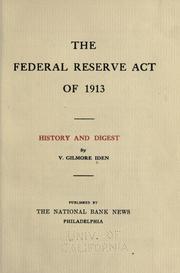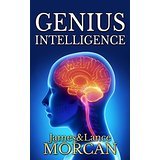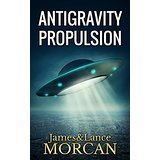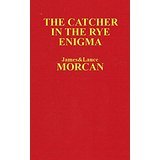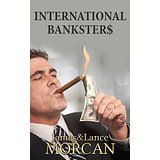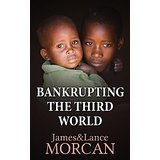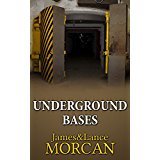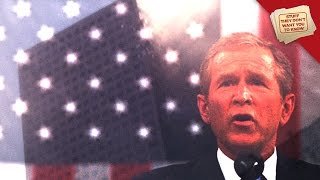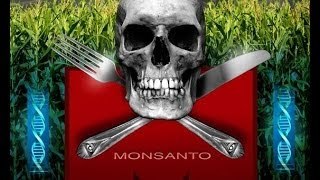Lance Morcan's Blog, page 45
December 29, 2016
See why Into the Americas is a bestselling novel – here’s the prologue…
Authors’ note:
Much of this novel was directly inspired by the diary entries of young English seaman John Jewitt during his time aboard the brig The Boston and also during his sojourn at Nootka Sound, on North America’s western seaboard, from 1802 to 1805.
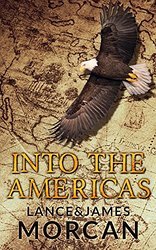
A novel based on a true story.
“Many paddles, one canoe” –First Nations saying
Prologue
In the skies above North America’s west coast, amongst the clouds, a bald eagle glided in lazy circles. With her magnificent white head and tail feathers, and her six-foot wingspan, she was the queen of her domain as she made use of the thermals that rose from the unseen terrain below.
The clouds parted to reveal a village – one of many populated by the indigenous people of the remote Northwest Pacific region. Nootka village was bordered by rugged, forest-covered hills which rose up out of the sea. Comprised of twenty or so large, wooden lodges, it was home to the Mowachaht tribe, one of the twenty-five Nuu-chah-nulth indigenous groups that occupied the region’s craggy coastline. A two-masted schooner lay at anchor offshore, safe for the moment in an inlet with the unlikely name of Friendly Cove.
Distance was no problem for the eagle whose sharp eyesight could distinguish any object from another, even if those objects were little bigger than a pinhead. Right now, her eyes were focused on a Chinook salmon swimming between the schooner and shore. The eagle flattened her wings and dove head first, extending her wings moments before she struck the water. Talons extended and now in a shallow dive, the eagle grasped the salmon and, with a few mighty beats of her wings, rose sluggishly skyward with her catch.
The eagle’s labored flight took her directly over the village. If any of the villagers had been waiting for her, with bow or musket primed, they’d have shot her down easily for she was as yet barely higher than the colorful totem poles that lined the shore. Fortunately for her, eagles were sacred to these people and so they ruled the skies with impunity.
A trade was going down with a dozen crewmen from the schooner. Unkempt and ill disciplined, the crewmen were typical of the freebooters who visited these shores in increasing numbers. They carried with them an assortment of weapons and were clearly no strangers to violence.
Armed Mowachaht warriors, ever-mindful of bad experiences they’d had with other European traders, kept a wary eye on the visitors. Most were armed with muskets, some carried blunderbusses and a few bore traditional weapons, including clubs, spears and tomahawks.
The traders had come to exchange muskets for sea-otter pelts. Much sought-after, the beautiful pelts fetched a princely sum in the civilized world – especially in London and in Macau, China. Consequently, Nootka village and the sound named after it was an increasingly popular port of call for traders intent on filling their ships’ holds with the bounty of the New World.
Most of Nootka’s fifteen hundred residents were present to observe the trade, which was being conducted on a sandy beach in front of the village. Trading, especially with visiting Europeans, was a highlight of their short, hard lives. More so after the long winter months – as was the case on this pleasant spring day.
Among the Mowachahts, the common or untitled people wore sealskin and coarse cedar bark clothing, which afforded protection from the constant rain in these parts. The chiefs and men and women of high ranking wore animal skins and colorful capes or, in rare cases, the pelt of the sea-otter.
Headmen invariably wore the striking black sea otter pelt. It extended to the knees and was fastened around the waist by a wide band of colorful, woven cedar bark. The warriors wore square-cut, yellow mantles with holes cut for the arms – similar to those worn by the commoners except theirs were dyed red and were more basic.
Absent from the trading activities were the Mowachahts’ slaves. Acquired in raids on neighboring tribes, the slaves were readily identifiable as such as they collected firewood and performed other menial tasks in and around the village. Though they spoke the same Wakashan language as their Mowachaht masters, their appearance was quite different: each bore the physical characteristics of his or her tribe. Some were lighter skinned, others darker; some were tall and slender, others short and stocky; some male slaves were bald or wore their hair short, others wore their hair in long ringlets; most wore raggedy sealskin clothing while some were near-naked. Their number included almost as many females as males – the former more often than not serving as sex slaves as well as manual workers.
Above the beach, the Mowachahts’ lodges extended to the tree line. They were a sprawling collection of wooden dwellings, the remnants of a Spanish trading outpost vacated some years earlier. Smoke from cooking fires curled up into the sky from strategically placed openings in the lodges’ roofs.
The totem poles – some even taller than the surrounding fir trees – towered over the lodges.
On the beach, there was an air of tension as the schooner’s master, Captain Alvin Walsh, an abrasive New Yorker with a well deserved reputation for dishonest trades, bargained with a group of headmen. Foremost among the latter was Maquina, chief of the Mowachahts. Tall, bronze and muscular, the middle-aged Maquina cut an impressive figure in his ceremonial cloak. Feathers protruded from his long, black hair, which he wore as a bun on top of his head. Like all the headmen, white down covered his head and shoulders, conveying the impression of falling snow.
Captain Walsh’s steely gaze was fixed on the bundles of pelts that lay at his feet while Maquina’s hawk-like eyes were fixed on a dozen new muskets stacked end-to-end in an open casket. The casket lay on top of five identical unopened caskets.
Hard-nosed bartering had begun soon after the traders had stepped ashore earlier in the day and, to both parties, it seemed a successful trade was no closer. Tempers were becoming frayed.
Maquina pointed at the caskets and, in broken English, said, “Maquina say…five pelts…one musket.”
Walsh shook his head. “One musket…ten pelts.” He appeared ready to depart, a shrewd strategy he’d fine-tuned years earlier when trading watered-down whisky to the East Coast tribes.
The chief quickly nodded to his opposite, indicating they had a deal. Walsh gestured to his men who immediately began scooping up bundles of pelts.
Maquina intervened. “Try musket first,” he said.
Walsh cursed under his breath as he motioned to his men to hold off for the moment. He then selected a musket from the open casket and handed it to Maquina. The shrewd chief ignored the offering and selected another musket. He expertly primed it and fired it into the air. The shot echoed throughout Nootka Sound. Still suspicious, Maquina broke open another casket. He tested a second musket with the same result. Satisfied, he made the faintest of hand gestures to his warriors who immediately uplifted the caskets and carried them away.
A relieved Walsh motioned to his men to resume gathering up the pelts. Under Maquina’s penetrating gaze, the captain appeared tense and he exhorted his men to hurry.
There was good reason for Maquina’s suspicion. The Mowachahts – like all members of the wider Nuu-chah-nulth community – had been short-changed, and worse, by European traders. As the number of visiting trading vessels increased, so too had the number of unsavory incidents. The indiscriminate shooting of villagers by drunk or disgruntled traders was becoming almost commonplace and the rape and mistreatment of women even more so.
And so it was with some malevolence that Maquina and his people observed these latest traders as they ferried their trade items back to the waiting ship.
#
Early next morning, Maquina led a six-strong hunting party into the hills behind Nootka village. His five companions included Peshwar, a forbidding headman whose reputation as a fearsome warrior rivalled that of the chief and extended far beyond the borders of the Mowachahts’ territory. All six hunters carried shiny, new muskets acquired in the previous day’s trade, and they were keen to put them to good use.
Ahead of them, in dense forest, an elk grazed. Something spooked him. He wasn’t sure what – a scent or a sound perhaps – and he took off.
Soon after, Maquina spotted the elk’s tracks and knelt down to study them. He then led his fellow hunters deeper into the trees at a fast trot.
Elsewhere in the forest, the same elk burst into a clearing, disturbing a twelve-strong war party of Haachaht warriors, traditional enemies of the Mowachahts. They carried bows, tomahawks and other traditional weapons, and wore the grotesque wolf’s brow mask associated with their tribe.
The Haachahts’ chief, Callicum, a stocky man who wore a large nose-ring, stared into the surrounding trees. He flashed a hand signal at his warriors and they quickly dispersed. Now hidden from sight, they could hear the Mowachaht hunters moving through the undergrowth in pursuit of the elk.
Reaching the forest clearing, the Mowachahts stopped to study their quarry’s tracks. Maquina’s eyes were drawn to an eagle circling high above. He stared at the bird for a few seconds before returning his gaze to the trees. Sensing danger, he primed his musket. His fellow hunters followed suite.
A Haachaht bowman stepped out from behind a tree and aimed an arrow directly at Maquina. The bowman held his bow horizontal, in the manner of the indigenous people of the west coast. Maquina dropped to one knee and swung his musket up just as the bowman loosed his arrow. The arrow lodged in the throat of a tall Mowachaht standing directly behind Maquina. Mortally wounded, the warrior collapsed, choking on his own blood. Maquina killed the bowman with one well placed shot.
Haachaht war cries rang out as Callicum led his warriors out from the trees. Another arrow found its mark, killing a young Mowachaht. Reduced to four, the remaining Mowachahts fought like men possessed.
Two Haachahts closed in on Peshwar. He aimed his musket at the nearest of the two. A hollow click signalled it had malfunctioned. Cursing, Peshwar threw his musket aside and drew his tomahawk. “Peshak!” he swore as he grappled with his enemies. With two mighty swings of his tomahawk, the two Haachahts lay dead at his feet, their heads almost severed from their bodies.
As the fight escalated, a short Mowachaht aimed his musket at a burly Haachaht who rushed him, club in hand. His musket also misfired and he was clubbed to the ground. The Haachaht finished him off before he was felled by a musket shot.
Nearby, Maquina found himself fighting alongside Peshwar. “The muskets are faulty!” Maquina shouted.
Peshwar nodded. “The White-Faces have deceived us!”
The chief found himself face-to-face with Callicum who charged him with a tomahawk in each hand. Maquina raised his musket and pulled the trigger. This time his weapon misfired. Before he could reload, the Haachaht chief was onto him. Maquina was forced to back-peddle and use his musket to block his attacker’s blows. Peshwar came to his aid, wounding Callicum with his own tomahawk.
Seeing their chief in trouble, the other Haachahts seemed unsure what to do next.
Maquina and Peshwar took advantage of their enemies’ indecision and fled, dragging with them the other surviving hunter.
As they made good their escape, Maquina was consumed by the anger he felt toward the European traders. Yet again his people had fallen foul of the traders’ unscrupulous ways. On this occasion, faulty muskets had contributed to the deaths of three of his finest warriors.
INTO THE AMERICAS (A novel based on a true story) is available as a paperback and Kindle ebook exclusively via Amazon: http://www.amazon.com/Into-Americas-novel-based-story-ebook/dp/B00YJKM51E/
*****************************
December 27, 2016
Silent Fear (A novel inspired by true crimes) – coming soon!
A female detective is assigned to investigate the murder of a student at a prestigious university for the deaf in London. The investigation coincides with a deadly flu virus outbreak, resulting in the university being quarantined from the outside world… That’s the premise of our soon-to-be-released book Silent Fear (A novel inspired by true crimes).
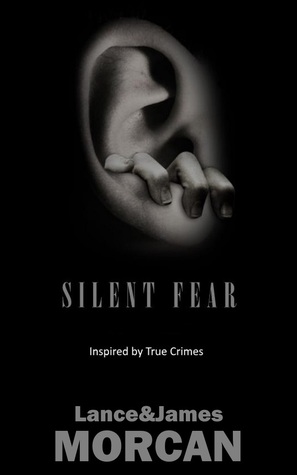
New thriller novel…chilling.
Set in the often underreported world of the Deaf, we hope Silent Fear will give readers a unique insight into what everyday life for deaf people is like. We have worked closely with the Deaf community to ensure authenticity.
This novel was inspired by the murders of two deaf students at Gallaudet University, one of the world’s most prestigious learning institutions for the deaf, in the early 2000’s. The investigating authorities didn’t know if it was an ‘inside job’ and for a time nearly everyone connected to Gallaudet was under suspicion.
We have also penned a screenplay adaptation of the book and are concurrently developing a feature film adaptation of Silent Fear. Here’s a two-minute teaser trailer for the movie: https://www.goodreads.com/videos/1136…
One of the producers on board the film adaptation, New Zealand’s premiere Deaf filmmaker Brent Macpherson, is obviously a fantastic asset to the production. We are very appreciative that Brent has seen the cinematic potential in our story and has poured his heart and soul into developing the associated film project.
Silent Fear (A novel inspired by true crimes): https://www.goodreads.com/book/show/3…
Other novels by Lance & James Morcan include:
The Orphan Trilogy (The Orphan Trilogy #1-3)
Into the Americas (A novel based on a true story)
White Spirit (A novel based on a true story)
The World Duology (The World Duology #1-2)
To view all our fiction and non-fiction books check out our authors’ pages on Amazon: https://www.amazon.com/James-Morcan/e...
**************************************








December 16, 2016
Global discussion group membership passes 3,000 milestone
Underground Knowledge, the global discussion group we founded on Goodreads, has cracked the 3,000 membership milestone, making it one of the fastest-growing and most active groups on the popular Amazon-owned literary site for books, authors and readers.
The Underground Knowledge group was designed to encourage debates about important and underreported issues of our era.
If you are interested, check it out at https://www.goodreads.com/group/show/142309-underground-knowledge—a-discussion-group — New members are welcome! All you need is an enquiring mind and a desire to gain or share “underground knowledge”. Our current members (Undergrounders) range from award winning authors, scientists, teachers and historians to former intelligence agents, journalists, students and everyday readers.
Here’s a snapshot of what the group’s Undergrounders are discussing now:
The multi-trillion dollar WW2 cover-up
Finding (hiding) a cure for cancer
The 2016 U.S. Presidential Election
The overpopulation myth (part 1)
Bobby Kennedy – “RFK must die”
Unit 731 – the Japanese Auschwitz
Where do you guys get your daily news from?
Evidence for scientifically advanced Ancient civilizations?
James Morcan’s rant against Holocaust Deniers
Does the UK control the US? And did America ever achieve full independence from Britain?
Book of Genesis – not an original document?
Was 9/11 a false flag attack and ‘Inside Job’? 54% of you voted YES
The Queen’s position in modern Britain
The Untold History of The United States
…………And the list goes on!
To visit the Underground Knowledge group go to: https://www.goodreads.com/group/show/142309-underground-knowledge—a-discussion-group
*************************************
December 14, 2016
WHITE SPIRIT historical adventure novel on special at 99 cents
To celebrate the successful launch of our new release historical adventure WHITE SPIRIT (A novel based on a true story) the publisher has reduced the Amazon Kindle ebook price to 99c for a few days.
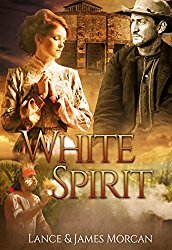
For lovers of action, romance and adventure.
Based on the remarkable true story of Irish convict John Graham, WHITE SPIRIT is an epic historical adventure set in 19th Century Australia. After escaping from the notorious Moreton Bay Penal Settlement, Graham finds refuge with the Kabi, a tribe of Aborigines who eventually accept him as one of their own.
See what Amazon Australia Top 50 reviewer Todd Simpson has to say about this novel: ★★★★★ “A very good book. Both Lance and James Morcan have done an amazing job with this incredible story. Being based on a true story, made it that much more interesting…”
WHITE SPIRIT (A novel based on a true story) is exclusive to Amazon. To see all the reviews for this book go to: https://www.amazon.com/White-Spirit-novel-based-story-ebook/dp/B01LWIRH9J/
99c price promotion ends December 20 PST.
*****************************************








December 11, 2016
The Fed under microscope in ‘INTERNATIONAL BANKSTER$’
There’s a theory that contends the US Federal Reserve, aka the Fed, is an institution that acts independent of the US Congress, has zero transparency or accountability, and even determines its own monetary policy. If one day proven to be correct, the alternative theory surrounding the Federal Reserve is one that may explain a variety of unusual occurrences in financial markets over the years.
We investigate the Fed, in general, and the Federal Reserve Act of 1913, in some detail, in our book INTERNATIONAL BANKSTER$: The Global Banking Elite Exposed and the Case for Restructuring Capitalism. An excerpt from the book follows…
In 1913, the banksters finally succeeded in creating a US central bank with the passing of the Federal Reserve Act. This bill, which had already been soundly defeated several times, appears to have come to fruition only because of well-orchestrated timing: the Federal Reserve Act was slipped through a skeleton Congress on December 23, 1913 when most of the bill’s opponents had already left Congress for the holidays.
The Federal Reserve System, which was first devised in that secret meeting on Jekyll Island, was now codified by Congress and remains in effect to this day.
Fact: The Federal Reserve is the central bank of the United States even though it’s not a part of the US Government.
Say what?
It’s not a part of the government. Not even remotely.
But it says Federal! Surely it cannot be a privately owned organization?
The Fed is not a part of the government, at all.
Critics of the Federal Reserve say its sole purpose is to strip wealth from honest, hardworking American citizens and make the world’s leading banking clans even richer.
John Hylan, Mayor of New York City from 1917 until 1925, made some extraordinary statements in a speech he delivered in 1922. What Mayor Hylan said seems to confirm a grand conspiracy was indeed devised for the American banking system by the global elite.
“The real menace of our Republic is the invisible government, which like a giant octopus sprawls its slimy legs over our cities, states and nation,” said Mayor Hyland. “To depart from mere generalizations, let me say that at the head of this octopus are the Rockefeller-Standard Oil interests and a small group of powerful banking houses generally referred to as the international bankers. The little coterie of powerful international bankers virtually run the United States government for their own selfish purposes. They practically control both parties, write political platforms, make catspaws of party leaders, use the leading men of private organizations, and resort to every device to place in nomination for high public office only such candidates as will be amenable to the dictates of corrupt big business.”
Only nine years after the Federal Reserve System was created, Mayor Hylan already seemed to be aware that this “invisible government” of “powerful international bankers” was controlling the US Government.
Cast your eye over these other quotes about the Fed and make up your own mind…
“The regional Federal Reserve banks are not government agencies…but are independent, privately owned and locally controlled corporations.” –Lewis vs. United States, 680 F. 2d 1239 9th Circuit 1982
“Most Americans have no real understanding of the operation of the international money lenders. The accounts of the Federal Reserve System have never been audited. It operates outside the control of Congress and manipulates the credit of the United States.” –Senator Barry Goldwater
“The Federal Reserve bank buys government bonds without one penny.” –Congressman Wright Patman, Congressional Record, Sept 30, 1941
“The financial system has been turned over to the Federal Reserve Board. That Board administers the finance system by authority of a purely profiteering group. The system is Private, conducted for the sole purpose of obtaining the greatest possible profits from the use of other people’s money.” –Charles A. Lindbergh Sr., 1923
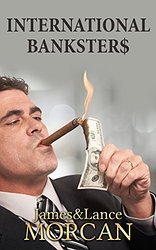
INTERNATIONAL BANKSTER$ is exclusive to Amazon: http://www.amazon.com/INTERNATIONAL-BANKSTER-Restructuring-Capitalism-Underground-ebook/dp/B015QN5RTY/
*********************************************








December 3, 2016
Seven recommended books for seekers of underground knowledge
For readers seeking underground knowledge and for those interested in important and underreported issues of our era, check out the seven books published (so far) in our sometimes controversial, often contentious, always hard-hitting Underground Knowledge Series.
For what it’s worth, our definition for the term “underground knowledge” follows at the end of this post along with reasons why we believe underground knowledge is so crucial for our present society.
The Underground Knowledge Series of books (listed below in order) is exclusive to Amazon. All are available as Kindle ebooks, and the books are progressively being released as paperbacks. (*** denotes available now as a paperback).
*** #1 in series http://www.amazon.com/GENIUS-INTELLIGENCE-Techniques-Technologies-Underground-ebook/dp/B00QXQQWXO/
*** #2 in series http://www.amazon.com/ANTIGRAVITY-PROPULSION-Technologies-Underground-Knowledge-ebook/dp/B00RSF22SI/
#3 in series http://www.amazon.com/MEDICAL-INDUSTRIAL-COMPLEX-Suppressed-Underground-ebook/dp/B00Y8Y3TUM/
#4 in series (paperback release imminent) http://www.amazon.com/Catcher-Rye-Enigma-Coincidental-Underground-ebook/dp/B00YVROKZ4/
#5 in series http://www.amazon.com/INTERNATIONAL-BANKSTER-Restructuring-Capitalism-Underground-ebook/dp/B015QN5RTY/
#6 in series http://www.amazon.com/BANKRUPTING-THE-THIRD-WORLD-Underground-ebook/dp/B0176UHWH0/
*** #7 in series http://www.amazon.com/UNDERGROUND-BASES-Subterranean-Facilities-Underground-ebook/dp/B0184KA4KS/
Our definition of the term “underground knowledge” essentially covers details and concepts and little-known events that are usually not reported in the Mainstream Media (MSM), or if they are mentioned by MSM they are underreported for various reasons. Likewise, underground knowledge is usually not taught at universities in history courses or other academic fields, or if it is it’s often whizzed over (e.g. the radical science of Nikola Tesla is briefly taught at universities of the world but not in any great detail compared to say the more mainstream and agreed-upon science of Newton and Einstein).
Keep in mind knowledge is not simply facts – it’s also theories. For example, one could study in detail an economic theory from the 1950s which economists now universally agree and have proven to be an incorrect or impossible theory. However, studying such disproven theories is still just as much knowledge as studying anything else. Equally, one could study the history of famous lies told or grand hoaxes (all shown to be not factual) and knowing these historical details would also amount to a form of knowledge. Therefore, many topics covered in our books, by their very nature will and must go beyond facts and explore various theories in order to cover all possible angles…angles that are not covered by MSM or mainstream academia.
Have we piqued your interest? If so, do check out our fast-growing Underground Knowledge discussion group on the authors and readers literary site Goodreads.com – https://www.goodreads.com/group/show/142309-underground-knowledge—a-discussion-group
*****************************************








November 28, 2016
Readers taken into world’s deepest caves in ‘Underground Bases’
In Underground Bases, book seven in our Underground Knowledge series, we advise readers that most underground bases most are built inside or directly above natural, pre-existing cave networks; and in our blog of October 26 we listed examples of some of these networks. Now we turn our attention to the extensive underground cave system known as Craighead Caverns, in Sweetwater, Tennessee.
The mysterious Lost Sea inside Craighead Caverns…
In the following excerpt from Underground Bases, we take our readers inside Craighead Caverns and we visit New Mexico’s Lechuguilla Cave, which is another example of the scale of underground cave systems:
According to Wikipedia, Craighead Caverns are “best known for containing the United States’ largest and the world’s second largest non-subglacial underground lake, The Lost Sea. In addition to the lake, the caverns contain an abundance of crystal clusters called anthodites, stalactites and stalagmites, plus a waterfall.”
Seen Magazine, of America’s Southeast Education Network, claims Craighead Caverns was named after an Indian chief who at one time owned the property and the cave, and who may well have discovered the tiny opening that was its natural entrance.
In an article dated November 19, 2010, Seen Magazine reports, “During the Civil War (1863) parts of the cave were mined for salt-peter — which was used as a principal ingredient in the manufacturing of gunpowder.
“In 1905 Mr. Ben F. Sands, then just a boy…pushed beyond the fluctuating pool of the Spring Room through the tiny mud crawlway — and into the Lake Room — discovering the Lost Sea. Rumors of a large lake in Craighead Caverns had existed before Ben Sands discovery, but these may have referred to the elusive back-waters in the Spring Room, and not the actual chamber of the Lost Sea.
“In 1927 Craighead Caverns was formed. A larger more accessible entrance was opened below the natural one to make entering the cave less strenuous. The Tennessee Power Co. installed the first lighting system — which was among the first cave systems in the country.”
The Lechuguilla Cave, in New Mexico, is another example of the scale of underground cave systems. Only officially discovered in 1986, Lechuguilla is the deepest cave in the US and the seventh-longest explored cave in the world.
New Mexico’s Lechuguilla Cave…a more recent discovery.
According to ExtremeScience.com, this cave is a winding, twisting underground maze which has yet to be completely explored and mapped. Currently, 101 miles of Lechuguilla have been explored and mapped, with no end in sight. So far, the deepest part of the cave measured goes down 1,632 feet.
This almost pales to insignificance when compared to the deepest cave in the world – identified by ExtremeScience.com as Voronja, or “Crow’s Cave”, in the western Caucasus Mountains of the Georgian Republic, which “has officially been verified to be 7,021 feet deep.” According to Wikipedia, it remains the only known cave on Earth deeper than 2,000 meters or one and a quarter miles.
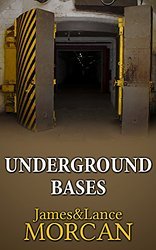
Underground Bases is available exclusively via Amazon: http://www.amazon.com/UNDERGROUND-BASES-Subterranean-Facilities-Underground-ebook/dp/B0184KA4KS/
**********************************************








November 24, 2016
Holocaust denialism an attack on the truth…so listen up all you deniers!
Why should anyone be concerned by the existence of Holocaust denialism? We ask this question in our book DEBUNKING HOLOCAUST DENIAL THEORIES: Two Non-Jews Affirm the Historicity of the Nazi Genocide. The answer to the question is really very simple…
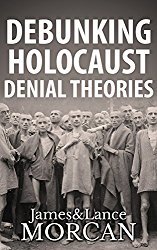
Any denial or distortion of a historically proven event is an attack on the truth. In the case of the Holocaust, persecution of Jews by the Nazis ended in genocide. However, the Jewish community weren’t the only ones who suffered. Millions of other ‘undesirables’ died at the hands of the Nazis – a graphic reminder that when one race or group of people is targeted, everyone is vulnerable. To deny or undermine the historicity of the Holocaust at a time when anti-Semitism is once again on the rise worldwide, is to fan the flames of racism and hate; to tolerate it is to invite a repeat of history…
_____________________________________________________
“Injustice anywhere is a threat to justice everywhere.” –Martin Luther King, Jr.
_____________________________________________________
Deniers will pretend they are impartial and say they simply wish to report anomalies they’ve discovered in historical records, but deep down there abides a hatred of Jews. In some, or even many, cases their hatred may only be subconscious, as in partially hidden even from themselves, or it may be purely unconscious, as in automatic or reflexive, without them understanding why they are anti-Semitic. Either way, it amounts to hatred.
All too often, anti-Semitism is like a subtle form of brainwashing that is either conspiracy-based or religious-based. With the former, classic examples include the conspiracy theory which would have us believe the banking elite are all Jewish, or the age-old myth that the Jews control the entire world; with the latter, certain fundamentalists – most notably in extremist forms of Christianity or Islam – believe the Jews are an inferior people or practice an inferior religion.
_____________________________________________________
“Thus, a story concocted by Mark strictly for evangelistic purposes to shift the blame for Jesus’s death away from Rome is stretched with the passage of time to the point of absurdity, becoming in the process the basis for two thousand years of Christian anti-Semitism.” –Reza Aslan, Zealot: The Life and Times of Jesus of Nazareth
_____________________________________________________
An article on the United States Holocaust Memorial Museum (USHMM) website does an excellent job of summarizing the various ways people end up becoming deniers. Titled Origins of Holocaust Denial, the article states that many “deny the Holocaust for more overtly racist, political, or strategic reasons.”
The USHMM article continues, “These deniers begin with the premise that the Holocaust did not happen. This premise suits their broader purposes. They deny the Holocaust as an article of faith and no amount of rational argumentation can dissuade them. This denial is irrational, largely unrelated either to the facts of the history or to the enormity of the event. Some people deny the Holocaust because of innate antisemitism, irrational hated of Jews.
“In fact, Holocaust denial has been called by some scholars the “new antisemitism” for it recycles many of the elements of pre-1945 antisemitism in a post-World War II context. Holocaust deniers argue that reports of the Holocaust are really part of a vast shadowy plot to make the white, western world feel guilty and to advance the interest of Jews.
“Holocaust denial, then, unites a broad range of radical right-wing hate groups in the United States and elsewhere, ranging from Ku Klux Klan segregationists to skinheads seeking to revive Nazism to radical Muslim activists seeking to destroy Israel”.
The USHMM article concludes, “Holocaust deniers want to debate the very existence of the Holocaust as a historical event. They want above all to be seen as legitimate scholars arguing a historical point. They crave attention, a public platform to air what they refer to as ‘the other side of the issue’. Because legitimate scholars do not doubt that the Holocaust happened, such assertions play no role in historical debates. Although deniers insist that the idea of the Holocaust as myth is a reasonable topic of debate, it is clear, in light of the overwhelming weight of evidence that the Holocaust happened, that the debate the deniers proffer is more about antisemitism and hate politics than it is about history.”
Incidentally, the USHMM makes a perceptive point about Holocaust deniers. It reminds us the very views they perpetuate, accusing Jews of conspiracy and world domination, are the same “hateful charges that were instrumental in laying the groundwork for the Holocaust” in the first place.
You have been reading an excerpt from Debunking Holocaust Denial Theories – by James & Lance Morcan. The book is exclusive to Amazon: http://www.amazon.com/DEBUNKING-HOLOC...
************************************








November 21, 2016
‘Medical Industrial Complex’ (the book) asks why doctors downplay the cancer-diet connection
The link between diet and health is well proven and, more importantly, widely acknowledged by doctors, for ailments such as diabetes and heart disease, but are roundly ignored by them in treating other human conditions – cancer being one of those. We address this in our book Medical Industrial Complex, and we ask why mainstream (Western) medicine seems to go out of its way to discourage cancer patients from making too much of the cancer-diet connection.
Further to our blog of October 28, here’s another excerpt from Medical Industrial Complex:
The good health site HoneyColony.com neatly addresses this in an article quoting Dr. Carolyn Dean, a medical advisory board member of the nonprofit Nutritional Magnesium Association. She says, “There are many reasons why diet is not stressed in cancer treatment” and “Most of them stem from the fact that medicine does not put any emphasis on nutrition in medical school…In about 3,500 hours of typical medical school training, maybe one, two, or three hours’ worth of classes are devoted to basic nutrition”.
So now it’s only three hours of basic nutrition at most…in a five-year course! Lordy.
The cancer-diet connection is also examined by the BBC online in an article dated May 19, 2013. Presenter Sheila Dillon, herself a cancer patient, observes, “Thousands of scientific papers have been published on the link between diet and the treatment and prevention of cancer, but in practice food is still considered a marginal aspect of cancer care”.
Ms Dillon continues, “Research confirmed that in most cancer centres in the UK, diet is still seen as almost meaningless in cancer treatment and aftercare. Yet there is good science available on the subject, though not a lot of it is what medics call ‘gold standard’ science.
“There are almost no double-blinded, large scale, studies done on people because they are expensive, very hard to do and there is no financial incentive. Who would make serious profit out of the discovery that mushrooms kill cancer cells?
“Most of the research has been done on cancer cells in the laboratory or on animals. What the best of it shows is interesting implications in a range of foods.
“One of the best-researched foods (in the US and Ireland) is the spice turmeric. Curcumin is a chemical compound found in the root of turmeric, which has a general anti-inflammatory effect and quite specific effects on several forms of cancer, including mine,” she says.
“Research has also been conducted on berries containing ellagic acid, which seems to curb cancer cells’ ability to grow their own blood supply, mushrooms (the polysaccharides), green tea, as well as the cabbage and onion families.
Ms Dillon concludes, “From my experience as a cancer patient I think many people fear that they are being ungrateful for the medical care they have had by bringing up issues such as diet”.
______________________________________________________
“First the doctor told me the good news: I was going to have a disease named after me.” –Steve Martin
______________________________________________________
Still in the UK, if a report published by the British Psychological Society is correct, “too many people with eating disorders are being dismissed by doctors as simply having peculiar habits with food”.
The report, dated February 25, 2014, is based on the findings of Cosmopolitan UK magazine and the charity Beat which warned that “around 1.6 million people currently have an eating disorder in Britain, half of whom have being diagnosed with an EDNOS (eating disorder not otherwise specified) that is separate from anorexia or bulimia”.
The article continues, “However, many of these patients could be left waiting up to two years for treatment in the form of cognitive behavioural therapy because GPs do not view their symptoms as sufficiently serious to warrant urgent investigation”.
By now it should be clear there’s a serious disconnect between (most) doctors and the role of nutrition in their patients’ health. Whether you blame those who set the already crowded curricula at medical schools or whether you blame the tunnel vision mainstream medicine has regarding diet, the fact remains there’s a problem. And in many independent medical researchers’ eyes it’s a big problemo.
TBC
MEDICAL INDUSTRIAL COMPLEX: The $ickness Industry, Big Pharma and Suppressed Cures is Book #3 in The Underground Knowledge Series and is available exclusively via Amazon: http://www.amazon.com/MEDICAL-INDUSTRIAL-COMPLEX-Suppressed-Underground-ebook/dp/B00Y8Y3TUM/

**********************************








November 19, 2016
What’s HOT in our Underground Knowledge group this week
Donald Trump and that election result, 9/11 and those ‘inside job’ rumors, ISIS and the CIA’s terrorist sponsoring program, safety concerns over GMO’s and child immunizations, UFOs and ETs, out-there science and artificial intelligence, media manipulation, political assassinations, underground bases and the global elite — just some of the topics being aired on our Underground Knowledge discussion group on Goodreads, the online site for books, authors and readers.
Two explosive videos (above) that feature in the group this week include one asking what made Building 7 of the World Trade Center collapse on 9/11, and one asking exactly what is Monsanto.
Randomly selected links to this group’s discussion threads follow:
Evidence for scientifically advanced Ancient civilizations?
The overpopulation myth (part 1)
Is President Trump for the common people? Or has he secretly been installed by the 1% elite?
Conspiring to quash alternative medicines
Is the Islamic State (IS/ISIS) another invention of the West?
Meditation, Yoga and intelligence
Plum Island – inspired by Nazi science?
The secret history of mind control
Amazing UFO quotes from world leaders, NASA astronauts & other prominent figures
Can we trust news media outlets?
Symbolism of the Global Elite?
Saddam Hussein – who was that guy?
The multi-trillion dollar WW2 cover-up
The Prison Industrial Complex (PIC)
Should drugs be decriminalized?
The Queen’s position in modern Britain
James Morcan’s rant against Holocaust Deniers
Earlier historical versions of Jesus Christ?
The Titanic sinking engineered?
Dissecting anti-immigration arguments
These are just some of the topics under discussion in our Underground Knowledge group. To view them all, or better still to have YOUR say, go to: https://www.goodreads.com/group/show/142309-underground-knowledge—a-discussion-group

This global discussion group has been designed to encourage debates about important and underreported issues of our era. All you need is an enquiring mind and a desire to gain or share “underground knowledge”. Group membership has topped 2800, making it one of the fastest-growing groups on Goodreads.
************************************


























